Do you want to become a developer of exciting video games? Check out my how to become a Unity developer guide to learn the eight steps of this career path!
In this process, the most important thing that leads to success is passion and the ability to self-study to master Unity and build the necessary skills.
Keep reading to discover!
Overview of Unity Developer
The Unity developers overview below will help you understand this position, including the job duties and requirements.
Who Is A Unity Developer?
A Unity developer (dev) specializes in creating games and interactive experiences. They work with Unity’s IDE to design and build games on various platforms.
Today, Unity is a popular engine in the game industry due to its:
- Ease of use
- Compatibility
- Affordability
So, many game companies and studios use it to make their products. Some of the big names are Zynga, N-iX, and iLogos. As a result, Unity developers are an indispensable component of the gaming industry.
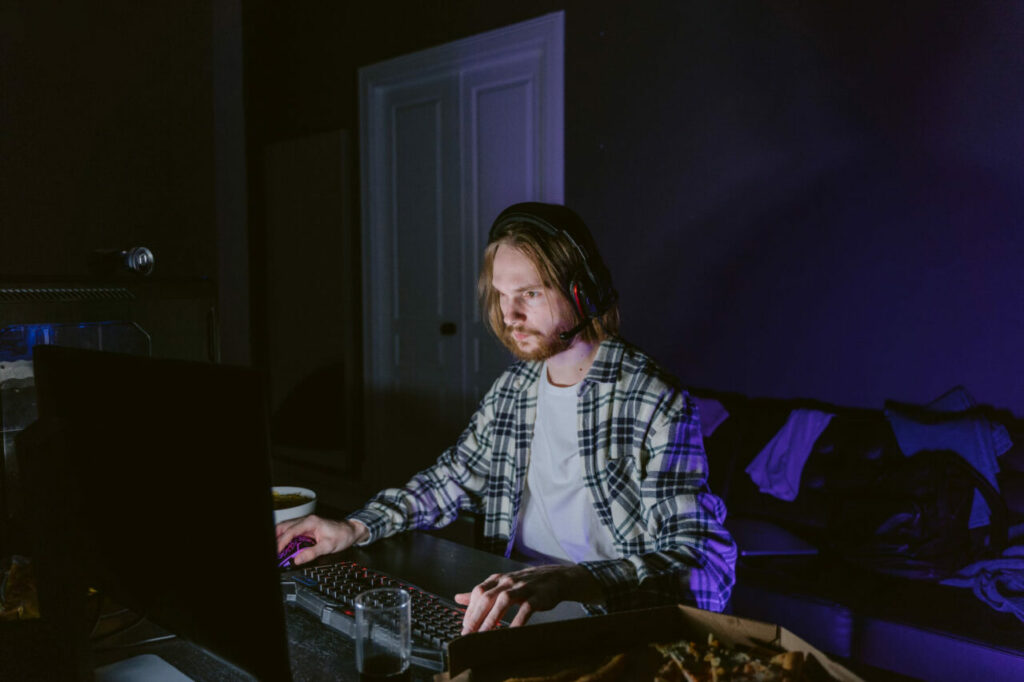
What Does A Unity Developer Do?
As a Unity dev, my primary task is to build games. I design game mechanics, create levels, and implement features that make the gameplay fun and exciting. Typically, my daily tasks include:
- Scripting: I write code using C# (or Java) to give life to the game. I define how characters move, how objects interact, and how the game responds to player input.
- 3D modeling and animation: I work with 3D artists to integrate characters, objects, and animations into the game. These visuals are essential for creating a captivating gaming experience.
- Optimization: I focus on optimizing games to run smoothly on various platforms.
- Debugging: I identify and fix any issues or bugs in the game that players might encounter and make sure everything works as intended.
- Collaboration: I work closely with other members, such as artists, designers, and sound engineers, to bring the game’s vision to life.
- Staying updated: I keep up with the latest Unity features, tools, and industry trends.
- Testing: Before releasing a game, I thoroughly test it to ensure it’s free from critical issues and provides a seamless gaming experience.
Job Requirements
Companies will ask candidates to know how to use Unity, have experience in making games, understand 3D models, and be skilled at writing code.
- Unity skills: You need to be good at using Unity software because you use it to make 3D applications and prototypes.
- Experience: You should have game-making experience, including creating tools and interfaces for gaming systems like PlayStation and Xbox.
- 3D knowledge: You must be familiar with 3D models and make things look real in games. You also need to know about game physics to make things move like they should.
- Coding and scripting: You must be proficient in using C# to code the game. You also need to know how to fix problems with code and make sure things run smoothly.
How To Become A Unity Developer
After understanding what you need to do in this position, let’s learn the steps to gain the skills and expertise to apply for it!
1. Get Familiar With Unity
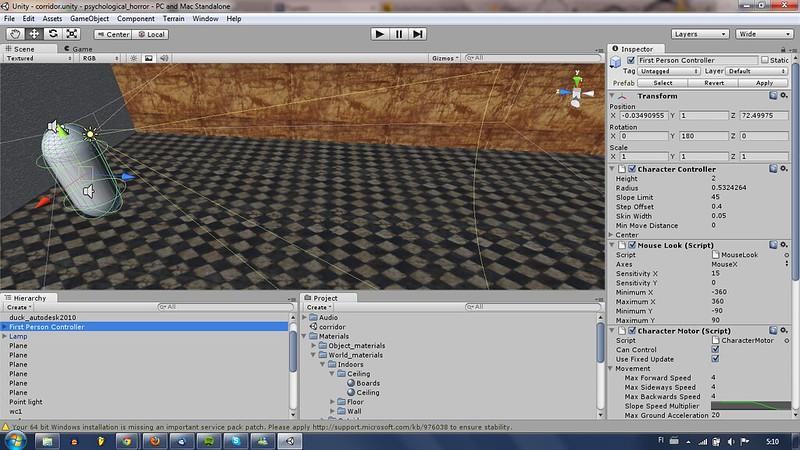
To become a Unity developer, you first need to install the Unity Editor on your computer. You can do this by going to the Unity website, selecting the pricing option, and downloading it.
Unity has free plans for students and individual users. So, you can choose one of these free plans to get started with this software.
Once you have Unity installed, it’s time to start playing around with it. Explore every part of the Unity Editor, like the menus and tools. Unity’s UI is made to be user-friendly, so you should be able to get the hang of it with some practice.
Unity also offers free projects that you can find on the Asset Store. These projects are like samples that you can download. If you feel stuck, you can check its documentation to solve your problems.
2. Take Part In Advanced Courses
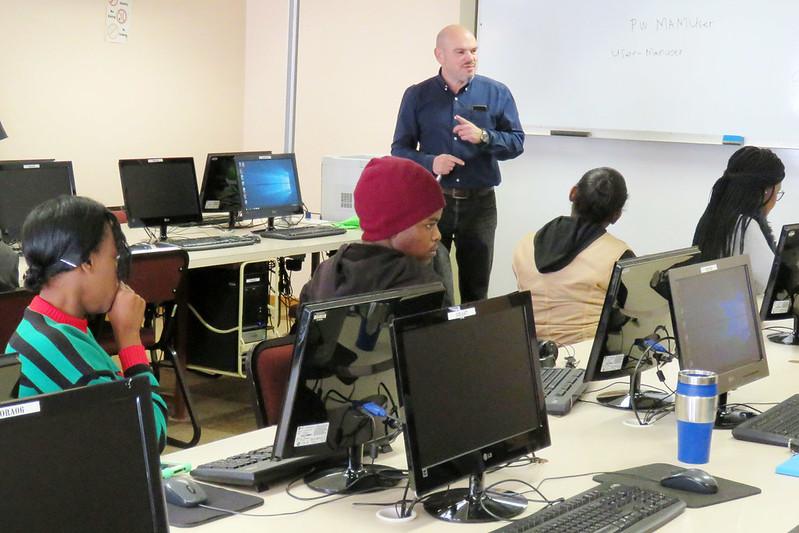
Once you’re familiar with the basics, you should take part in advanced courses to speed up your process. These courses teach you more about Unity beyond what you pick up online.
They have a clear plan to help you learn step by step. Plus, you get to practice what you learn by working on projects.
You can find these courses on websites like Coursera and Udemy; some even give you certificates for your resume. If you’re short on cash, you can also find free courses on YouTube or use Unity’s learning resources.
To do well in these courses, you need to put in some time and effort. Set aside regular time for learning, practice what you learn, and use it for your projects.
3. Get Started With Your First Project

Practice time! Starting your first Unity project is a significant milestone on your journey to becoming a Unity developer because it allows you to learn by doing.
Aspiring game developers lose interest or give up when faced with difficulties. So, you show you are serious about this career by completing your project.
Your first project will challenge you to solve problems. Games, like any complex project, come with issues and roadblocks. Moreover, you can bring your unique ideas to life. This creative outlet is incredibly fulfilling!
To get started, I recommend keeping your first project simple. Think about classic, straightforward game concepts like Pong or a basic platformer. A simple idea will help you grasp the fundamentals without feeling overwhelmed.
Don’t forget to set achievable goals and milestones. This planning stage will keep you on track and organized throughout development.
Remember that you don’t need to know everything right from the start. You’ll learn as you go along. And it’s okay to seek help and guidance when you encounter challenges.
Most importantly, stay committed! Even when things get challenging or confusing, resist the urge to quit. Perseverance is vital in game development!
4. Publish Your First Game
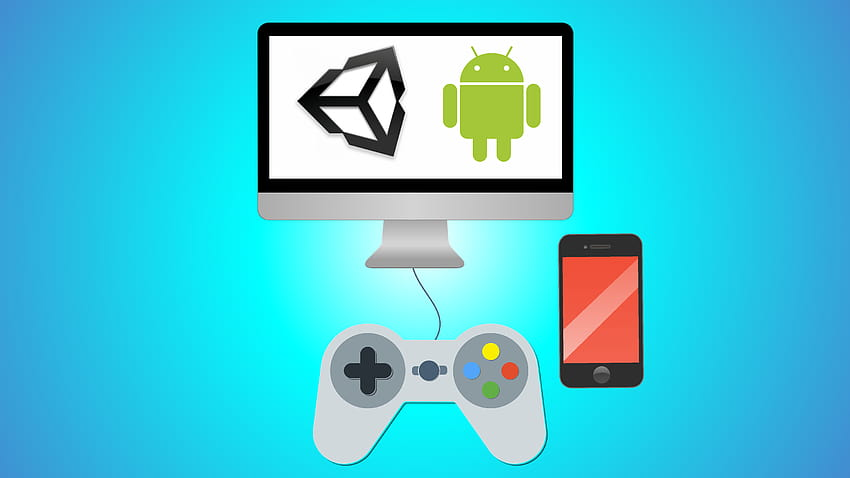
Typically, after about 4-6 months, you should complete your first game and publish it. It may sound a bit early, but it’s possible with a small game.
As for where to publish, it depends on your game development background. If you make PC games, Steam is an ideal place. If you make a game for mobile devices, upload it to CHPlay or the App Store.
I recommend mentioning that you are a game developer when publishing. It will make people trust you more. Then, wait for the first downloads and get feedback from players!
5. Gain Further Experiences
Once you’ve tried making and uploading your first game, you can start taking on freelance jobs or finding internships.
Freelancing lets you be your boss, and it’s perfect for honing your skills. It’s like a test run before becoming a full-time dev. It’s a valuable way to gain practical experience, build a portfolio, and establish your presence in the industry.
Otherwise, entry-level positions or internships are like on-the-job training if you want to work in a game company. You learn how to work in a real game-making team.
Both of these ways help you gain real experience. You learn how to solve problems in the real world, and you can try different things.
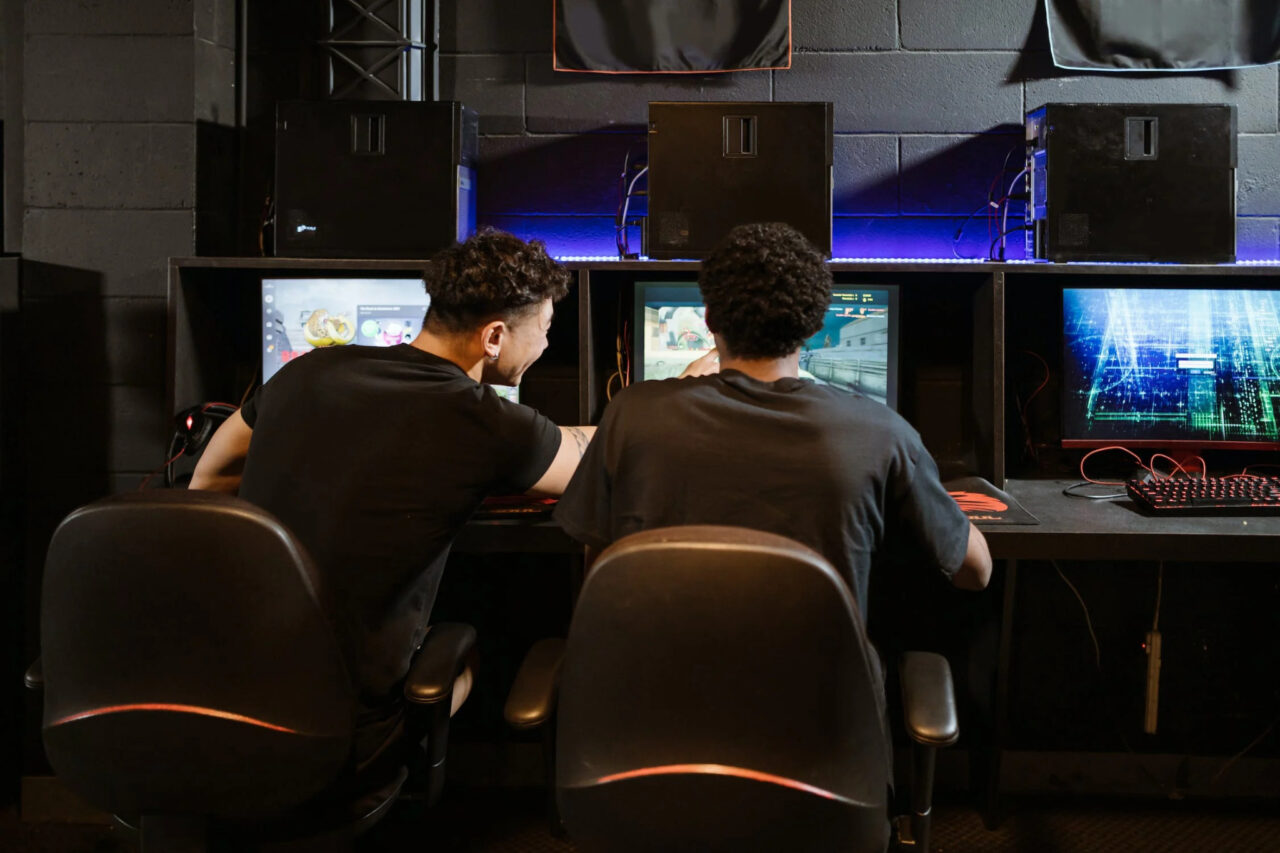
6. Market Yourself
You need to market yourself effectively if you want to become a recognized dev. This step is particularly vital if you are a freelancer as you need to attract clients and projects.
To market yourself, I recommend making a professional website or portfolio that shows your work, skills, and how to contact you.
Don’t forget to build your networking by attending game development events, meeting other developers, or joining online forums to make connections.
7. Build Your Portfolio
Portfolio is what will show employers your skills and experience. The better your portfolio, the more likely you are to get a job.
So, how to have an attractive portfolio? Check out the portfolio samples of experienced people to see how they synthesize and organize their projects.
My advice is not to put too many projects in your portfolio because it overwhelms the employer and doesn’t focus on your outstanding skills.
Ideally, keep the number of projects around 10. Another important thing is to include details about the process and results of those projects (with specific numbers).
As for the appearance, design it according to your preferences and style while still keeping it neat and legible.
8. Hunt for a Job

Finally, when ready, find and apply for this position on job boards and social networks. Otherwise, you can send an application to the email of the company you want to work for.
At this step, you need to find a position that suits your abilities. Don’t apply just because of the attractive salary. Instead, pay attention to more important factors such as job requirements, benefits, and company culture.
When you receive an interview invitation, review the knowledge and skills you have learned to prepare well for it. Interviews are your chance to showcase your passion, expertise, and skills to the employer.
After doing these steps well, you will quickly become a Unity developer and participate in creating attractive games!
Different Types of Unity Devs
If you want to work in Unity development, you can choose to become a software programmer, front-end dev, or software engineer.
- Software developer: You will use programming languages to script and code to build APIs for complex projects.
- Front-end dev: You will create the UI and UX within Unity apps. You will design and implement menus, buttons, HUDs (heads-up displays), and interactive elements players or users interact with.
- Software engineer: You will design, develop, and maintain software systems and applications with the Unity game engine.
Salary
According to ComputerCareers, the yearly salary of a Unity developer in 2023 falls between $74,000 and $123,000, including a starting salary of about $70,000 to $114,000 plus some extra pay of around $5,000 to $9,000 per year.
The actual salary can change based on many factors. More experienced Unity developers often earn more money. Also, you may get higher incomes if you work in places with higher living costs or tech hubs.
Why Should You Be A Unity Developer?
Being a Unity developer is beginner-friendly, pays well, offers creative tasks, and has plenty of room for growth.
First, it’s easy for beginners to start their careers because Unity is user-friendly and not too complicated. You don’t need to be a tech genius to get started.
Second, Unity developers get paid well, especially when starting, and it can lead to a stable career.
Third, it’s a versatile job. Unity developers mainly work with code. But they can also help design game worlds and characters, which is fun and creative.
Lastly, this field is still growing. The demand for these roles far exceeds the current supply of developers, so it’s a career with lots of opportunities.
FAQs
Is It Hard To Learn Unity?
Learning Unity can be challenging but isn’t overly difficult. It’s beginner-friendly, and there are many resources available. With dedication, you can grasp the basics relatively quickly and progress at your own pace.
Can I Get A Job As A Unity Developer?
Yes, there are job opportunities for Unity developers. As the demand for Unity expertise grows in the game industry, you can find positions in game studios, tech companies, and more.
Is Unity Developer A Good Career?
Yes, it offers a promising career. It combines creativity and technology, has a strong job market, and provides growth chances.
How To Become A Game Developer?
To become a game developer, start by learning programming languages and gaining proficiency in game engines. Then, build a portfolio with personal projects and consider formal education or online courses.
How Long Does It Take To Become A Unity Developer?
It depends. Learning the basics might take 3-6 months of consistent effort, but mastering Unity’s intricacies and becoming proficient may take a year or more, depending on your dedication and prior experience.
Wrap Up
You’ll be sure to apply for this position successfully and have plenty of opportunities for advancement if you go through all the eight steps in my guide on how to become a Unity developer above.
This process requires self-study and can be challenging if you don’t know where to start. But if you always try your best and pursue your passion, those difficulties will not defeat you! So, be persistent!
